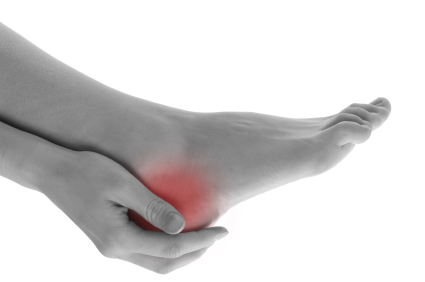Firstly, the longer you or your patient has had the symptoms, the longer it will take to heal.
Plantar heel pain is the culprit in most mechanical heel pain cases. It has a fairly predictable patient description- severe pain localised to the plantar heel, particularly when first weight bearing after a period of non-weight bearing (i.e. getting out of bed in the morning, after driving 30 minutes in the car etc). This pain will typically decrease after a number of minutes, and then returns gradually through the day, and worsens with more time spent on feet, or with higher intensity activities (e.g. running, exercise, jumping etc).
You are more likely to develop the condition if you're female, overweight or have a job that requires a lot of walking or standing on hard surfaces.
You're also at risk if you walk or run for exercise, especially if you have tight calf muscles that limit how far you can flex your ankles. People with very flat feet or very high arches also are more prone to plantar fasciitis.
When to see or refer to us:
- Heel pain that continues when NOT walking or standing
- Heel pain that lasts MORE than a few weeks, even trying rest, ice and other home treatments
Reach out -- we can help!



